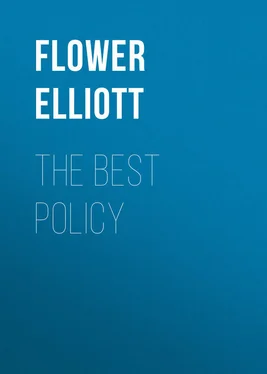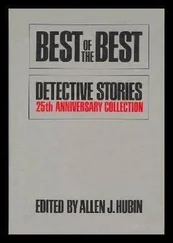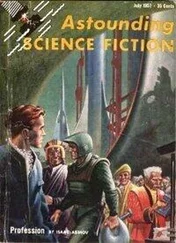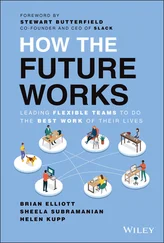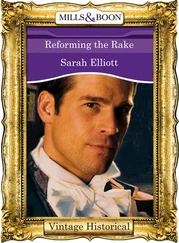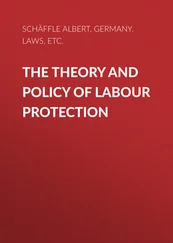Elliott Flower - The Best Policy
Здесь есть возможность читать онлайн «Elliott Flower - The Best Policy» — ознакомительный отрывок электронной книги совершенно бесплатно, а после прочтения отрывка купить полную версию. В некоторых случаях можно слушать аудио, скачать через торрент в формате fb2 и присутствует краткое содержание. Жанр: foreign_antique, foreign_prose, short_story, на английском языке. Описание произведения, (предисловие) а так же отзывы посетителей доступны на портале библиотеки ЛибКат.
- Название:The Best Policy
- Автор:
- Жанр:
- Год:неизвестен
- ISBN:нет данных
- Рейтинг книги:4 / 5. Голосов: 1
-
Избранное:Добавить в избранное
- Отзывы:
-
Ваша оценка:
- 80
- 1
- 2
- 3
- 4
- 5
The Best Policy: краткое содержание, описание и аннотация
Предлагаем к чтению аннотацию, описание, краткое содержание или предисловие (зависит от того, что написал сам автор книги «The Best Policy»). Если вы не нашли необходимую информацию о книге — напишите в комментариях, мы постараемся отыскать её.
The Best Policy — читать онлайн ознакомительный отрывок
Ниже представлен текст книги, разбитый по страницам. Система сохранения места последней прочитанной страницы, позволяет с удобством читать онлайн бесплатно книгу «The Best Policy», без необходимости каждый раз заново искать на чём Вы остановились. Поставьте закладку, и сможете в любой момент перейти на страницу, на которой закончили чтение.
Интервал:
Закладка:
“You don’t think I’m mercenary, do you, Stanley?”
“Indeed, I don’t, little woman,” he replied, as he kissed her; “I think you are only wise.”
“It seems so sort of heartless,” she went on, “but you know I’m planning only for the baby. There is something sure about life insurance, and everything else is so uncertain. Some of the stories Mr. Murray told were very sad.”
“Oh, Murray was after business,” he said with a laugh. “He told me long ago that he intended to insure me, and it’s been a sort of friendly duel with us ever since. But he has convinced me that he is right in holding that every married man should carry life insurance, and, aside from that, I would cheerfully pay double premiums to relieve you of any cause for worry. The insurance company is going to get the best of me, though: I’ll live long enough to pay in more than it will have to pay out.”
“Of course you will!” she exclaimed confidently. “You’re so big and strong it seems foolish – except for the baby. That’s why we mustn’t take any chances.”
So cheerful and confident was Wentworth that he failed to notice the solemnity of the physician who examined him the next day. The doctor began with a joke, but he ended with a perplexed scowl.
“You certainly look as strong as a horse,” he said. “But you’re not,” he added under his breath.
Then he made his report to Murray.
“Heart trouble,” he explained. “The man may live twenty or thirty years or he may die to-morrow. My personal opinion is that he will die within two years.”
Murray was startled and distressed. Wentworth was his close personal friend, and to refuse his application after he had striven so hard to get it seemed heartless and cruel, especially as the refusal would have to be accompanied by an explanation that would be much like a death-warrant. Of course, he was in no way responsible for the conditions, but it would seem as if he were putting a limit on his friend’s life.
“Are you sure?” he asked.
“Positive,” replied the physician. “It is an impossible risk.”
“Did you tell him?”
“No.”
“And I am to dine with him and his wife to-night,” said Murray. “They will be sure to ask about the policy.”
Murray was tempted to send word that he could not come, but it was rather late for that. Besides, the information would have to be given some time, so what advantage could there be in procrastinating? But it came to him as a shock. The news of actual death would hardly have affected him more seriously, for it seemed like a calamity with which he was personally identified and for which he was largely responsible. He knew that he was not, but he could not banish the disquieting feeling that he was. He closed his desk and walked slowly and thoughtfully to Wentworth’s house, wishing, for once, that he had been less successful in the “friendly duel.”
It was a long walk; he could easily have put in another half-hour at the office had he chosen to take the elevated; but he was in no humor for business and he preferred to walk. It gave him additional time for thought. He must decide when and how he would tell Wentworth, and it is no easy task to tell a friend that his hold upon life is too slight to make him a possible insurance risk.
He would not do it to-night. It would be nothing short of brutal so to spoil a pleasant evening. Wentworth would have the knowledge soon enough, even with this respite, and he was entitled to as much of joyousness and pleasure as could be given him.
Murray was noticeably dispirited. He tried to be as jovial as usual, but he found himself looking at his friend much as he would have looked at a condemned man. There was sympathy and pity in his face. He wondered when the hour of fate would arrive. Might it not be that very evening? A moment of temporary excitement might be fatal; anything in the nature of a shock might mean the end. Indeed, the very information he had to give might be the one thing needed to snap the cord of life. If so, he would feel that he had really killed his friend, and yet he had no choice in the matter: he must refuse and he must explain why he refused. If it had been his own personal risk, he would have taken it cheerfully, but even had he so desired, he could not take it for the company in the face of the doctor’s report.
“What makes you so solemn?” asked Mrs. Wentworth. “You look as if you had lost your best friend.”
“I feel as if I had,” Murray replied thoughtlessly, and then he hastened to explain that some business affairs disturbed and worried him.
“But your victory over Stanley ought to make you cheerful,” she insisted. “Think of finally winning after so long a fight!”
“When shall I get the policy?” asked Wentworth.
“Policies are written at the home office,” answered Murray evasively.
“But the insurance becomes effective when the application is accepted and the first premium paid, doesn’t it?” asked Wentworth.
“Yes,” answered Murray.
“Well, now that I am at last converted to insurance I am an enthusiast,” laughed Wentworth. “We won’t waste any time at all. Get out your little check-book, Helen, and give Murray a check for the first premium. I’ll make it good to you to-morrow.”
“I don’t believe I could accept it now,” said Murray hesitatingly. “There are certain forms, you know – ”
“Oh, well, I’ll send you a check the first thing in the morning,” interrupted Wentworth. “Perhaps it isn’t just the thing to turn a little family dinner into a business conference.”
“Better wait till you hear from me,” advised Murray, and his face showed his distress. He wished to avoid anything unpleasant at this time, but he was being driven into a corner.
“Is – is anything wrong?” asked Mrs. Wentworth anxiously.
“There is an extraordinary amount of red tape to the insurance business,” explained Murray, and the fact that he was very ill at ease did not escape the notice of Wentworth. The latter said nothing, but he lost his jovial air and he watched Murray as closely as Murray had previously watched him. It did not take him long to discover that Murray was abstracted and uncomfortable; that he was a prey to painful thoughts and kept track of the conversation only by a strong effort of will.
Mrs. Wentworth, too, discovered that something was wrong, and when the men retired to the library to smoke she went to her own room in a very unhappy frame of mind. She was sure that Murray had some bad news for her husband, but it did not occur to her that it concerned the insurance policy; it probably related to some business venture, she thought, for she knew that her husband had recently lost money and had still more invested in a speculative enterprise. Well, he would get the news from Murray, and she would get it from him.
Murray did not remain long, and he went out very quietly. Usually the two men laughed and joked at parting, but there was something subdued about them this time. As they paused for a moment at the door, she heard her husband say, “That’s all right, old man; it isn’t your fault.” Then, instead of coming to her, he put on his hat and left the house almost immediately after Murray had gone.
It was late when he came back, but she was waiting for him, and his face frightened her. He seemed to have aged twenty years in a few hours; he was haggard and pale and there was something of fear in his eyes.
“What’s the matter?” she asked. “You look sick.”
“A little tired,” he answered with an attempt at carelessness. “I’ll be all right to-morrow.”
“Mr. Murray was troubled, too,” she persisted. “What’s it all about?”
“Oh, Murray has been unfortunate in a little business affair,” he explained.
Читать дальшеИнтервал:
Закладка:
Похожие книги на «The Best Policy»
Представляем Вашему вниманию похожие книги на «The Best Policy» списком для выбора. Мы отобрали схожую по названию и смыслу литературу в надежде предоставить читателям больше вариантов отыскать новые, интересные, ещё непрочитанные произведения.
Обсуждение, отзывы о книге «The Best Policy» и просто собственные мнения читателей. Оставьте ваши комментарии, напишите, что Вы думаете о произведении, его смысле или главных героях. Укажите что конкретно понравилось, а что нет, и почему Вы так считаете.
